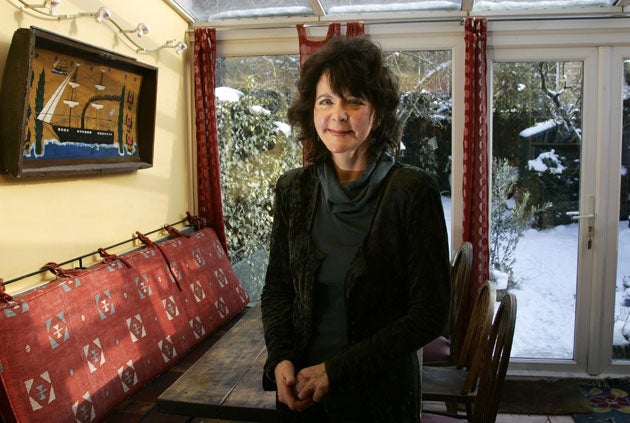Bittersweet victory for Ruth Padel
The race for the Oxford Chair of Poetry had everything, from sex claims to allegations of character assassination. Emily Dugan reports

Your support helps us to tell the story
From reproductive rights to climate change to Big Tech, The Independent is on the ground when the story is developing. Whether it's investigating the financials of Elon Musk's pro-Trump PAC or producing our latest documentary, 'The A Word', which shines a light on the American women fighting for reproductive rights, we know how important it is to parse out the facts from the messaging.
At such a critical moment in US history, we need reporters on the ground. Your donation allows us to keep sending journalists to speak to both sides of the story.
The Independent is trusted by Americans across the entire political spectrum. And unlike many other quality news outlets, we choose not to lock Americans out of our reporting and analysis with paywalls. We believe quality journalism should be available to everyone, paid for by those who can afford it.
Your support makes all the difference."The problems of victory are more agreeable than those of defeat, but they are no less difficult". The words are Winston Churchill's, but last night they could just as easily have been uttered by the poet Ruth Padel, who learned, after a tempestuous week, that she had been elected Oxford University's new professor of poetry.
The win was bittersweet, coming as it did after Nobel Laureate Derek Walcott withdrew from the race last Tuesday mired by a smear campaign which alleged he had sexually harassed students while working in America in the Eighties and Nineties. Documents accusing 79-year-old Walcott were circulated at the university, forcing the poet to stand down to avoid embarrassment. In a statement, he said: "I am disappointed that such low tactics have been used and I do not want to get into a race for a post where it causes embarrassment to those who have chosen to support me or to myself. While I was happy to be put forward for the post, if it has degenerated into a low and degrading attempt at character assassination, I do not want to be part of it."
And so Padel faced competition only from the little-known Indian poet Arvind Mehrotra and won by 297 votes to Mehrotra's 129. There were also 51 spoilt ballot papers. These were attributed to a group of senior academics who yesterday attempted to halt the election altogether – saying that nominations should be reopened in light of the events surrounding Walcott. In an open letter, co-ordinated by Eloise Stonborough, secretary of Oxford University Poetry Society, they wrote: "Many other names might have been nominated for this post if Walcott had not been present in the race."
Despite the flurry of publicity, yesterday's turnout of voters was much lower than expected. Only 477 of the 150,000 eligible Oxford graduates and academics cast their vote – fewer than the 500 who voted in the low-key election of Christopher Ricks in 2004.
Padel said yesterday that she was "delighted", and that it was "a good moment, despite the shadows". But, she said, the scandal surrounding the contest had prompted her to consider standing down altogether. "I've been sullied by the suggestion that I had anything to do with this, which means nothing I do will be right now.
"But fortunately this is about five years, not just a moment."
The great-great-granddaughter of Charles Darwin, Padel is a keen conservationist and hopes to use the role to help further environmental causes.
The eminent professorship has been held by some of the most important literary figures of the last 300 years, including W H Auden, Seamus Heaney and Matthew Arnold. Second only in prestige to the Poet Laureacy, the post is worth £6,901 a year.
Ruth Padel's CV
1946 Born in the attic of her great aunt's house in London.
1965 Reads classics at Lady Margaret Hall, Oxford.
1974-1984 Teaches Greek at Oxford University, Birkbeck College London, and Kings College Cambridge.
1985 'Alibi', her first pamphlet of poems is published.
1990 'Summer Snow', her first full collection of poems published.
1996-1999 writes a weekly column in The Independent on Sunday which analysed modern poems.
2004-2006 chair of the UK Poetry Society.
2009 Becomes University of Oxford Professor of Poetry.
Join our commenting forum
Join thought-provoking conversations, follow other Independent readers and see their replies
Comments